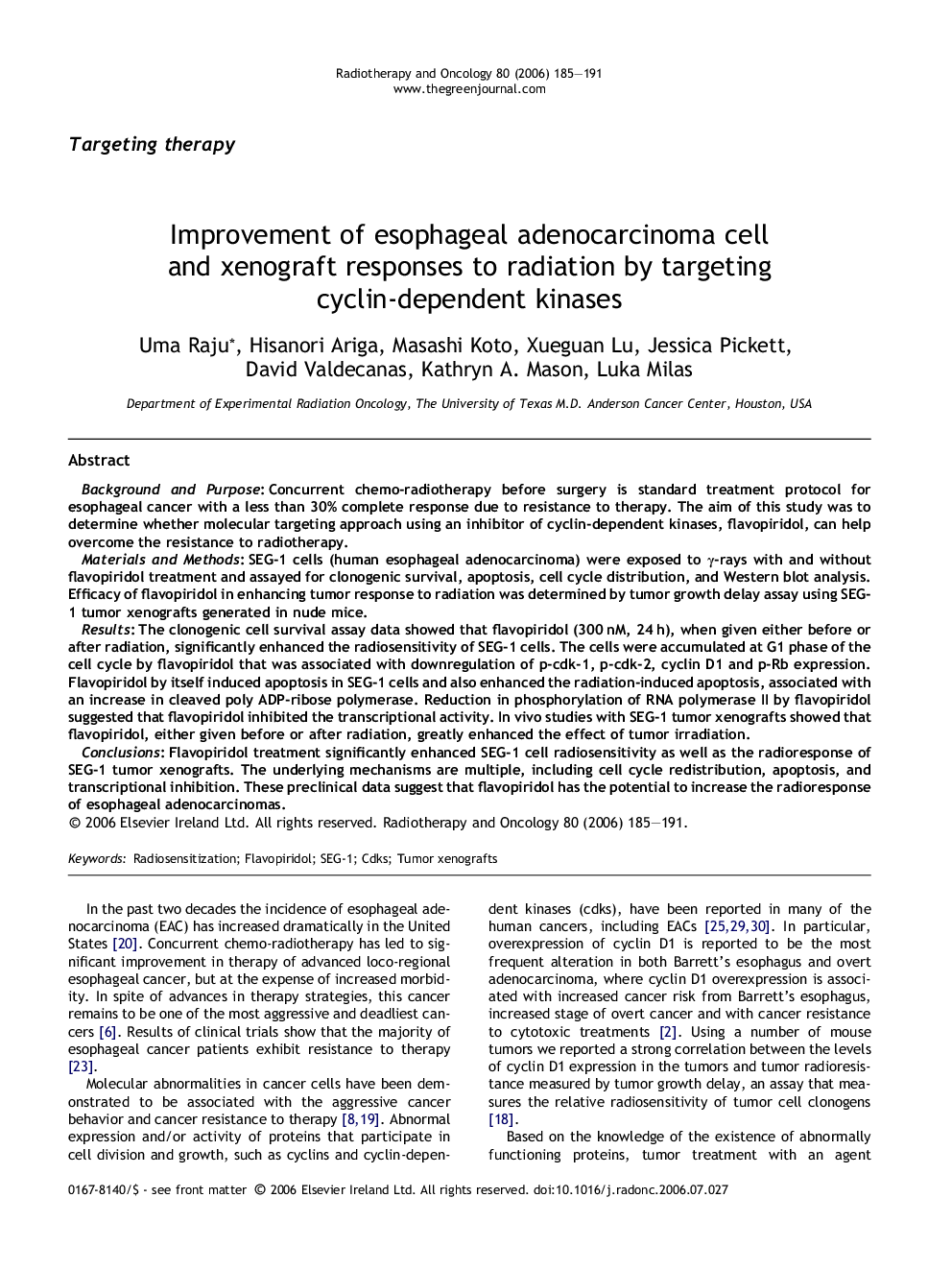| کد مقاله | کد نشریه | سال انتشار | مقاله انگلیسی | نسخه تمام متن |
|---|---|---|---|---|
| 2161322 | 1090912 | 2006 | 7 صفحه PDF | دانلود رایگان |

Background and PurposeConcurrent chemo-radiotherapy before surgery is standard treatment protocol for esophageal cancer with a less than 30% complete response due to resistance to therapy. The aim of this study was to determine whether molecular targeting approach using an inhibitor of cyclin-dependent kinases, flavopiridol, can help overcome the resistance to radiotherapy.Materials and MethodsSEG-1 cells (human esophageal adenocarcinoma) were exposed to γ-rays with and without flavopiridol treatment and assayed for clonogenic survival, apoptosis, cell cycle distribution, and Western blot analysis. Efficacy of flavopiridol in enhancing tumor response to radiation was determined by tumor growth delay assay using SEG-1 tumor xenografts generated in nude mice.ResultsThe clonogenic cell survival assay data showed that flavopiridol (300 nM, 24 h), when given either before or after radiation, significantly enhanced the radiosensitivity of SEG-1 cells. The cells were accumulated at G1 phase of the cell cycle by flavopiridol that was associated with downregulation of p-cdk-1, p-cdk-2, cyclin D1 and p-Rb expression. Flavopiridol by itself induced apoptosis in SEG-1 cells and also enhanced the radiation-induced apoptosis, associated with an increase in cleaved poly ADP-ribose polymerase. Reduction in phosphorylation of RNA polymerase II by flavopiridol suggested that flavopiridol inhibited the transcriptional activity. In vivo studies with SEG-1 tumor xenografts showed that flavopiridol, either given before or after radiation, greatly enhanced the effect of tumor irradiation.ConclusionsFlavopiridol treatment significantly enhanced SEG-1 cell radiosensitivity as well as the radioresponse of SEG-1 tumor xenografts. The underlying mechanisms are multiple, including cell cycle redistribution, apoptosis, and transcriptional inhibition. These preclinical data suggest that flavopiridol has the potential to increase the radioresponse of esophageal adenocarcinomas.
Journal: Radiotherapy and Oncology - Volume 80, Issue 2, August 2006, Pages 185–191